A 3-year (and counting) drought is threatening Canada’s farmers and oil producer by Rod Nickel and Nia Williams, Reuters, March 18, 2024, Fast Company
Farmers, oil drillers in parched Alberta brace for water shortage by Rod Nickel and Nia Williams, BOE Report, March 18, 2024
Drought in the western Canadian province of Alberta is stretching into its fourth year and farmers and oil companies are planning for water restrictions that threaten production of wheat, beef and crude.
The severe conditions have prompted Alberta to open water-sharing negotiations among licence-holders for the first time in two decades, hoping to salvage output from two of its biggest industries.
Alberta, which relies on melting snow and precipitation for most of its water supply, has allocated water since 1894. That system prioritises those who have held licences the longest, although holders rarely exercise that right.
Alberta’s water talks underline the difficult compromises facing resource-rich regions adapting to extreme weather. Hydrologists say the future will bring Alberta more rain instead of snow due to climate change, which will strain summer water supplies.
The province produces most of Canada’s oil, natural gas and beef, plus big wheat and canola harvests, much of which it exports.
Irrigation to grow crops in dry areas accounts for 46% of Alberta’s water allocation, with oil and gas using 10%.
Reuters spoke with more than a dozen farm, energy and government officials and found those industries preparing for the drought to potentially scale back production and raise costs.
Drought could cause double-digit declines in Alberta’s wheat yields, based on crop production data from the past two decades.
Oil producers are making costly contingency plans to store more water on site and truck water across the province.![]() Frac’ers already destroy roads taxpayers pay to build and maintain, including many only used by industry (with many companies refusing to pay their taxes, enabled by AER and UCP/TBA, dumping all the costs on us). Water is heavy, trucking water province-wide will bankrupt our municipalities (and those of us that pay for industry’s use of our roads).
Frac’ers already destroy roads taxpayers pay to build and maintain, including many only used by industry (with many companies refusing to pay their taxes, enabled by AER and UCP/TBA, dumping all the costs on us). Water is heavy, trucking water province-wide will bankrupt our municipalities (and those of us that pay for industry’s use of our roads).![]()
Brad Deleeuw, who manages the 5,500-head Delta Cattle feedlot near Coaldale, Alberta, said the impact of water scarcity “could be huge.”
Deleeuw will prioritize watering cattle over irrigating his wheat, corn and barley, but that shift will likely reduce yields.
“You’d go from a black situation to a red situation pretty quick,” Deleeuw said, referring to financial losses.
If he must import significantly more expensive cattle feed this summer from the U.S. to make up for smaller Canadian crops, Deleeuw said he would have to reduce how many cattle Delta fattens for slaughter by Cargill and JBS.
Drought contributed to Canada’s beef herd shrinking this year to its smallest on record, according to Statistics Canada.
Snow water equivalent, which measures water content of mountain snowpack, was down 40% as of March 5 from a year earlier in southern Alberta’s St. Mary River basin. The nearby Waterton basin was down 27%, according to provincial and federal government data.
Some 70% of Canada is abnormally dry or in drought, according to the government, with the driest conditions in Alberta and British Columbia.
Alberta’s largest-ever water-sharing talks could result in major consumers agreeing in early April to share water voluntarily with others downstream, environment ministry spokesperson Ryan Fournier said. If conditions remain dire, the province could declare an emergency and is working on a plan involving additional steps, Fournier said.29dk2902l
In 2001, the last time water-sharing negotiations happened, Alberta’s durum wheat yield was 22 bushels per acre, down 37% from the previous five-year average, according to Statistics Canada. In dry 2021, spring wheat yield fell 35% while barley yield dropped 36% year-over-year. The vast majority of Alberta’s grain grows on dry land, not irrigated land.
Alex Ostrop, who farms near Lethbridge, is bracing to make do with much less water to irrigate fields. In 2001, his district’s water allocation was eight inches per acre or 38% less than what Ostrop used last year.
“Commodity prices are down generally – (this year) would be a double whammy of lower commodity prices and reduced yields,” Ostrop said.
For oil companies, dry conditions may elevate costs by forcing them to shift drilling to sites with water access or to truck water, said Tristan Goodman, CEO of the Explorers and Producers Association of Canada. Companies will not drill if wells get too expensive, he said.![]() Not to worry, Big Oil and Gas Dildo Danielle Smith and her evangelical bosses, the TBA, will steal from ordinary Albertans to give to companies to pay for hauling water and destroying our roads to fulfill their insane frac lust.
Not to worry, Big Oil and Gas Dildo Danielle Smith and her evangelical bosses, the TBA, will steal from ordinary Albertans to give to companies to pay for hauling water and destroying our roads to fulfill their insane frac lust.![]()
Oil producers are renting on-site water storage structures known as C-rings and other swimming pool-sized spaces, drilling company Trican Well Service said.![]() Trican is the frac’er that broke the law for Encana/Ovintiv, frac’ing directly into Rosebud’s drinking water aquifers
Trican is the frac’er that broke the law for Encana/Ovintiv, frac’ing directly into Rosebud’s drinking water aquifers![]()
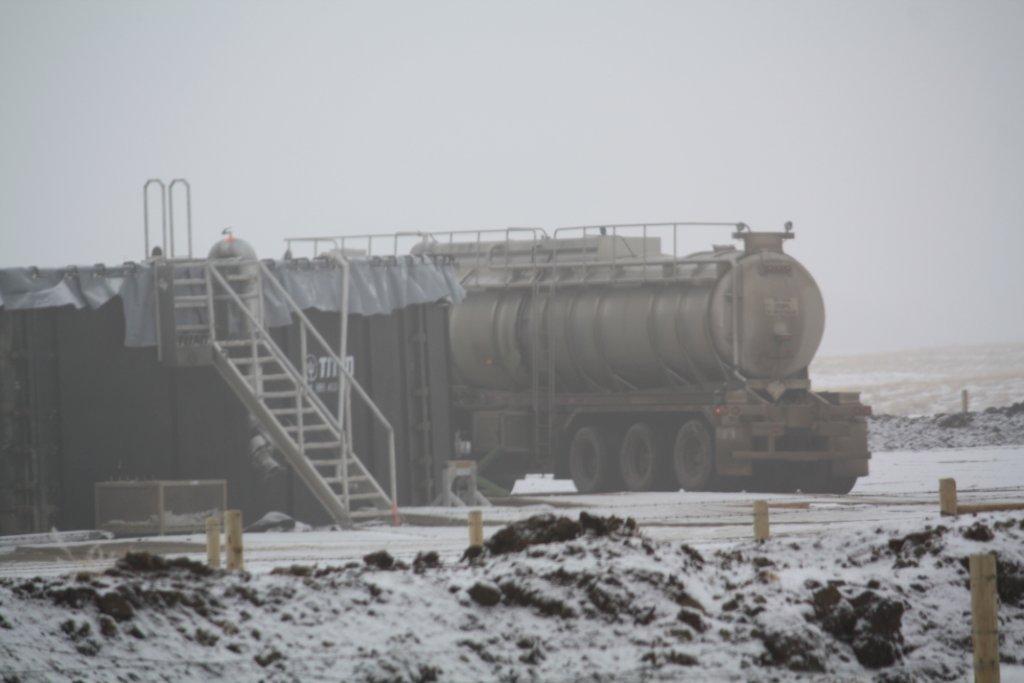
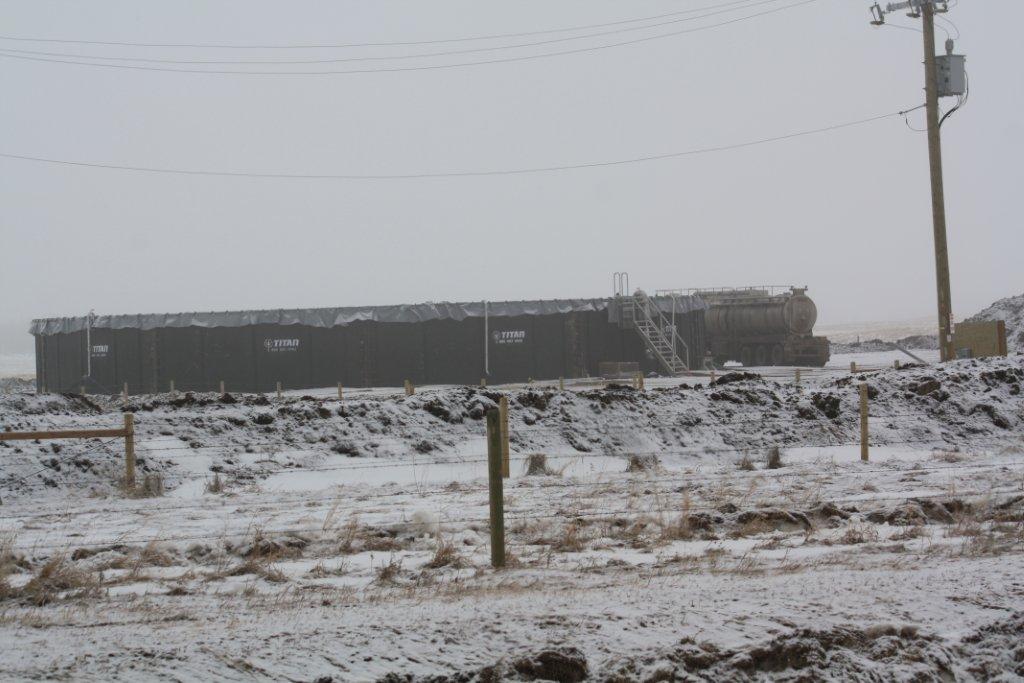
![]() Frac water hoarding NW of Calgary. Calgarians can’t wash their home windows because of water restrictions while frac’ers get to permanently remove from the hydrogeological cycle however much water they want to frac, removing it from any other future use.
Frac water hoarding NW of Calgary. Calgarians can’t wash their home windows because of water restrictions while frac’ers get to permanently remove from the hydrogeological cycle however much water they want to frac, removing it from any other future use.![]()
“You’re seeing customers start to really think about how they’re going to be managing water months in advance – they just haven’t had to worry about that before,” Trican CEO Bradley Fedora told analysts in February.
For now, parts of Alberta and British Columbia with the most conventional drilling and fracking have manageable water levels, Goodman said.
Drilled wells did not decline in the dry years 2001 and 2017, according to data from industry group Enserva.
Shell is putting water contingency plans in place for its Alberta wells, spokesperson Stephen Doolan told Reuters, declining to give details. Suncor Energy told analysts the drought has prompted it to plan a water-treatment plant in its oil sands operations for the end of this decade.
With Alberta possibly heading to a drier future, the province is spending C$933 million ($691.32 million) to expand irrigation.![]() Can’t get more stupid than Albertans when it comes to water and industry, or rather lack of water and industry.
Can’t get more stupid than Albertans when it comes to water and industry, or rather lack of water and industry.![]() That means Alberta will spread limited water supply over 230,000 additional acres, but the upgrade will reduce evaporation by converting open canals to pipelines, Alberta Agriculture Minister RJ Sigurdson said.
That means Alberta will spread limited water supply over 230,000 additional acres, but the upgrade will reduce evaporation by converting open canals to pipelines, Alberta Agriculture Minister RJ Sigurdson said.![]() Would be cheaper, less harmful and more sane to cover existing canals with solar panels as many water scarce or just plain smart jurisdictions are doing or have done. No need to waste time and money constructing water pipelines if there is no water to ship in them.
Would be cheaper, less harmful and more sane to cover existing canals with solar panels as many water scarce or just plain smart jurisdictions are doing or have done. No need to waste time and money constructing water pipelines if there is no water to ship in them.![]()
Oil and gas producers are maximizing efforts to store ![]() hoard
hoard![]() and recycle water
and recycle water ![]() Recycling won’t happen. Recycling water costs money which oil gas bitumen and frac polluters don’t like to spend. Instead they’ll drive to hell and back hauling water, polluting, destroying roads, and wasting fuel and wearing out trucks, likely speeding and violating other traffic laws, crashing and killing innocent Albertans
Recycling won’t happen. Recycling water costs money which oil gas bitumen and frac polluters don’t like to spend. Instead they’ll drive to hell and back hauling water, polluting, destroying roads, and wasting fuel and wearing out trucks, likely speeding and violating other traffic laws, crashing and killing innocent Albertans![]() , with all eyes on the skies, said Ken Wagner, CEO of Fraction Energy Services, which rents water storage equipment.
, with all eyes on the skies, said Ken Wagner, CEO of Fraction Energy Services, which rents water storage equipment.
“It’s definitely top of everybody’s mind. We need some more snow and we need big rain.”
![]() What “we” really need, is to criminalize frac’ing and water injection for enhanced oil recovery. Simple. Economic. Intelligent. Sane.
What “we” really need, is to criminalize frac’ing and water injection for enhanced oil recovery. Simple. Economic. Intelligent. Sane.![]()
Refer also to:
A proportion (25% to 100%) of the water used in hydraulic fracturing is not recovered, and consequently this water is lost permanently to re-use, which differs from some other water uses in which water can be recovered and processed for re-use.
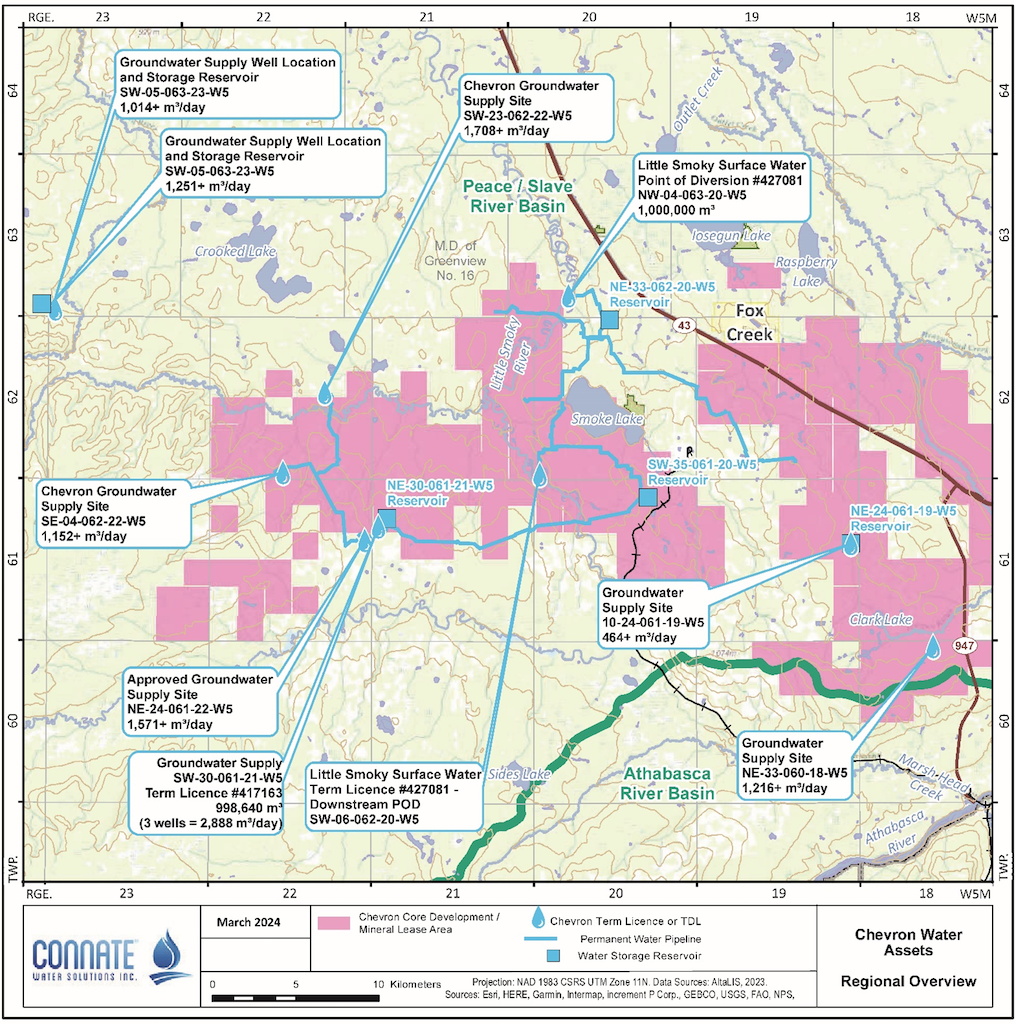
Alberta’s Mountain View Regional Water Services Commission votes to immediately stop use of its water for frac’ing. Carstairs Mayor and Board chair Lance Colby: “The request is that none of the towns supply water for fracking.” Defiant member town Crossfield: We’re not going to stop. ![]() Crystal clear foreshadowing of what’s to come for ordinary Canadians. Once the water’s gone in NEBC and Alberta, frac’ers will drive into Saskatchewan and further east, to truck their water to frac into oblivion.
Crystal clear foreshadowing of what’s to come for ordinary Canadians. Once the water’s gone in NEBC and Alberta, frac’ers will drive into Saskatchewan and further east, to truck their water to frac into oblivion.![]()
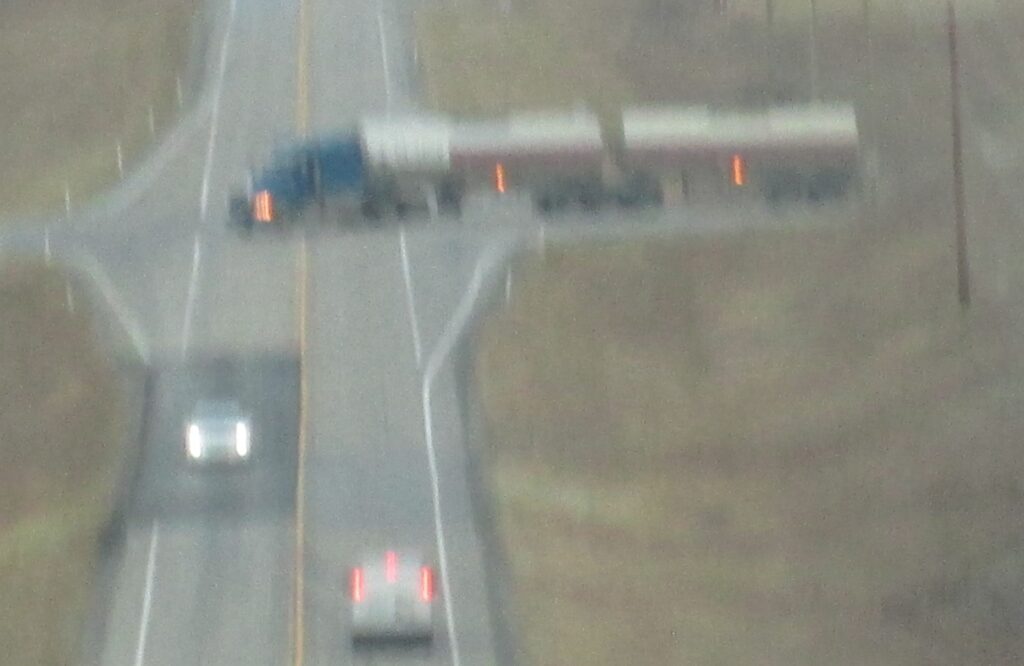
Photo by FrackingCanada
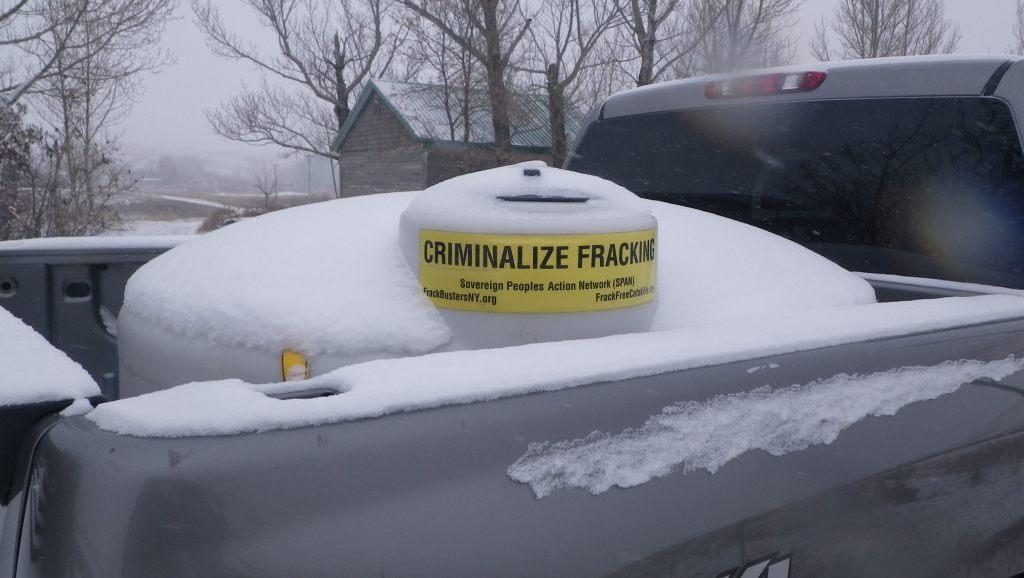
![]() My water tank used to haul alternate water after Encana intentionally illegally frac’d the aquifers that supply my community and my well.
My water tank used to haul alternate water after Encana intentionally illegally frac’d the aquifers that supply my community and my well.
